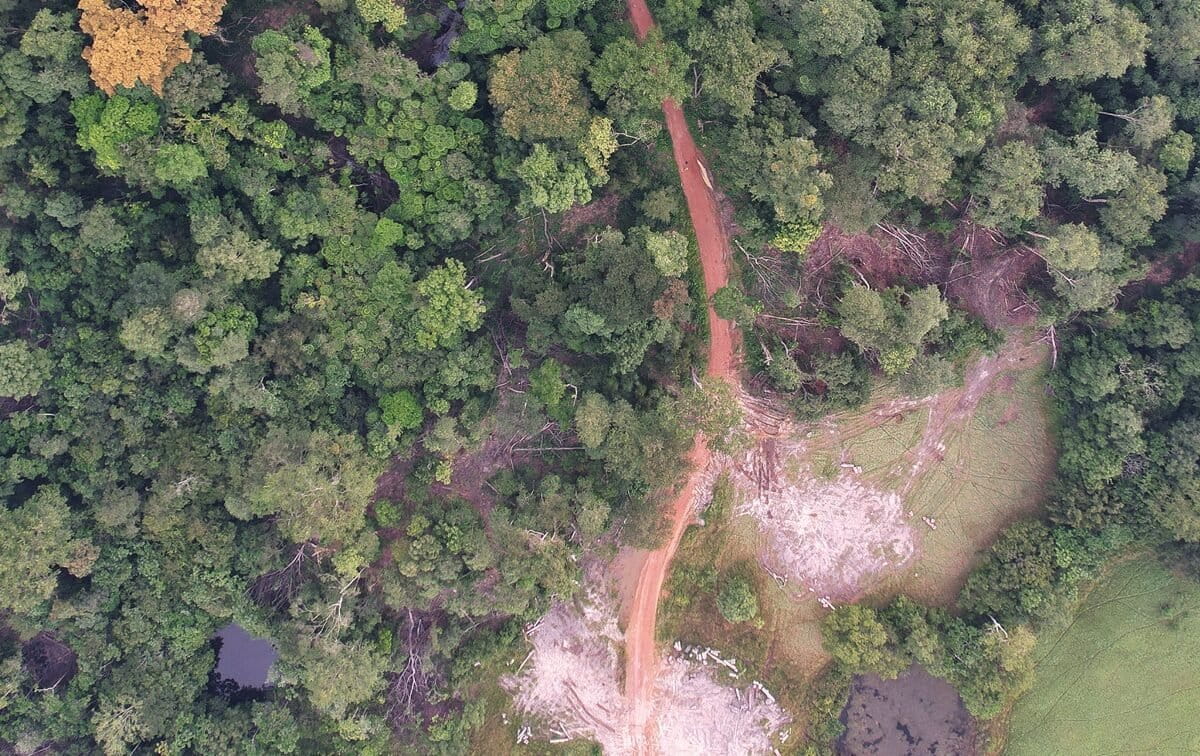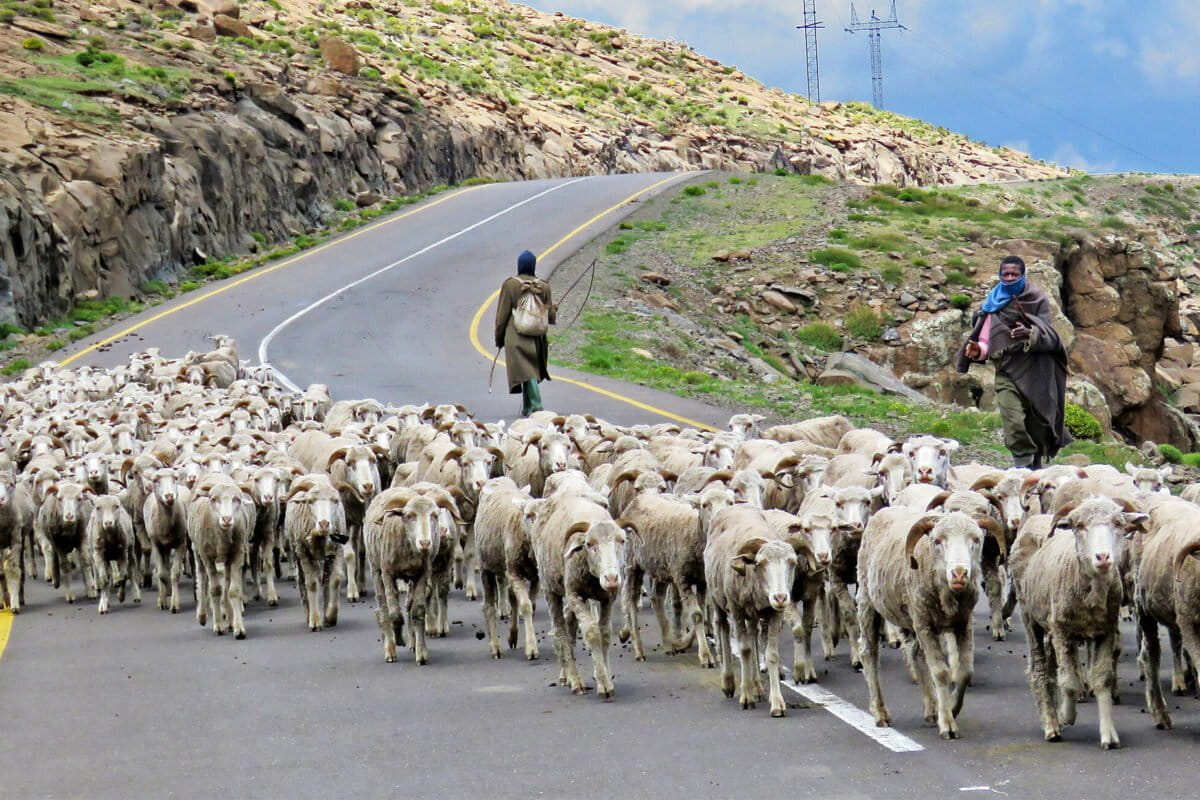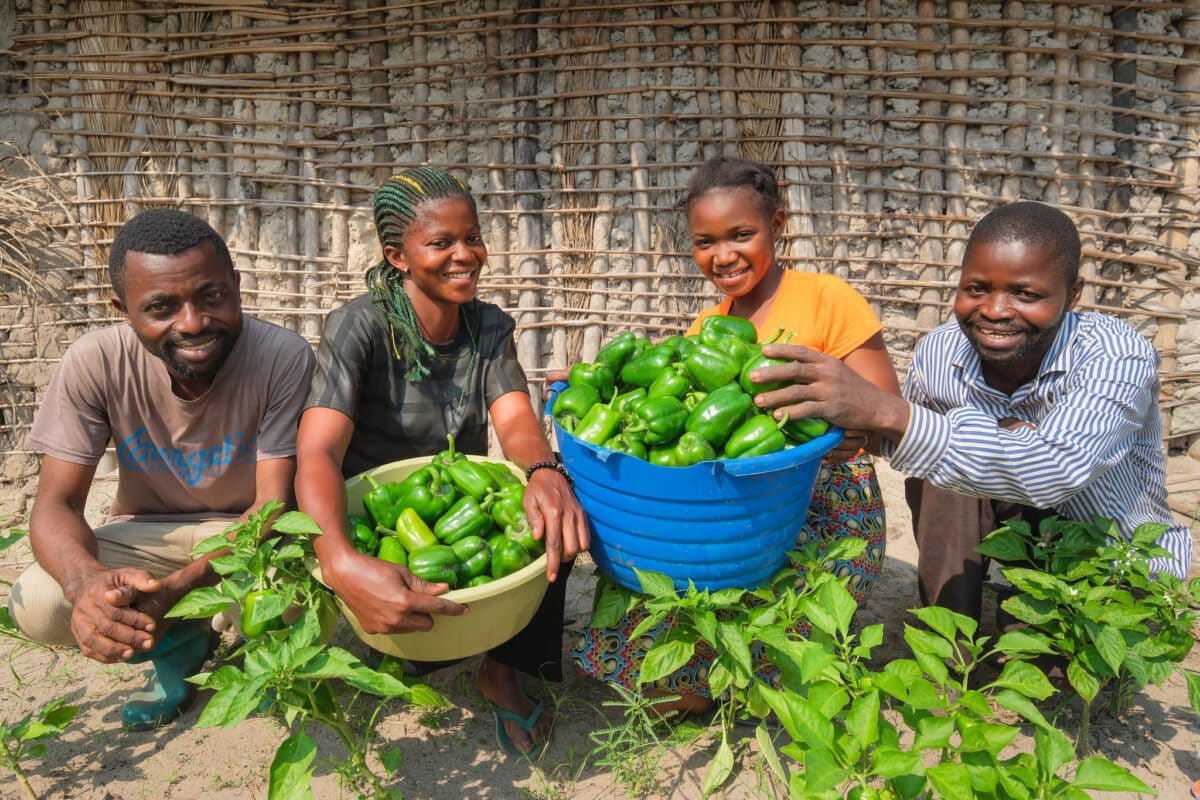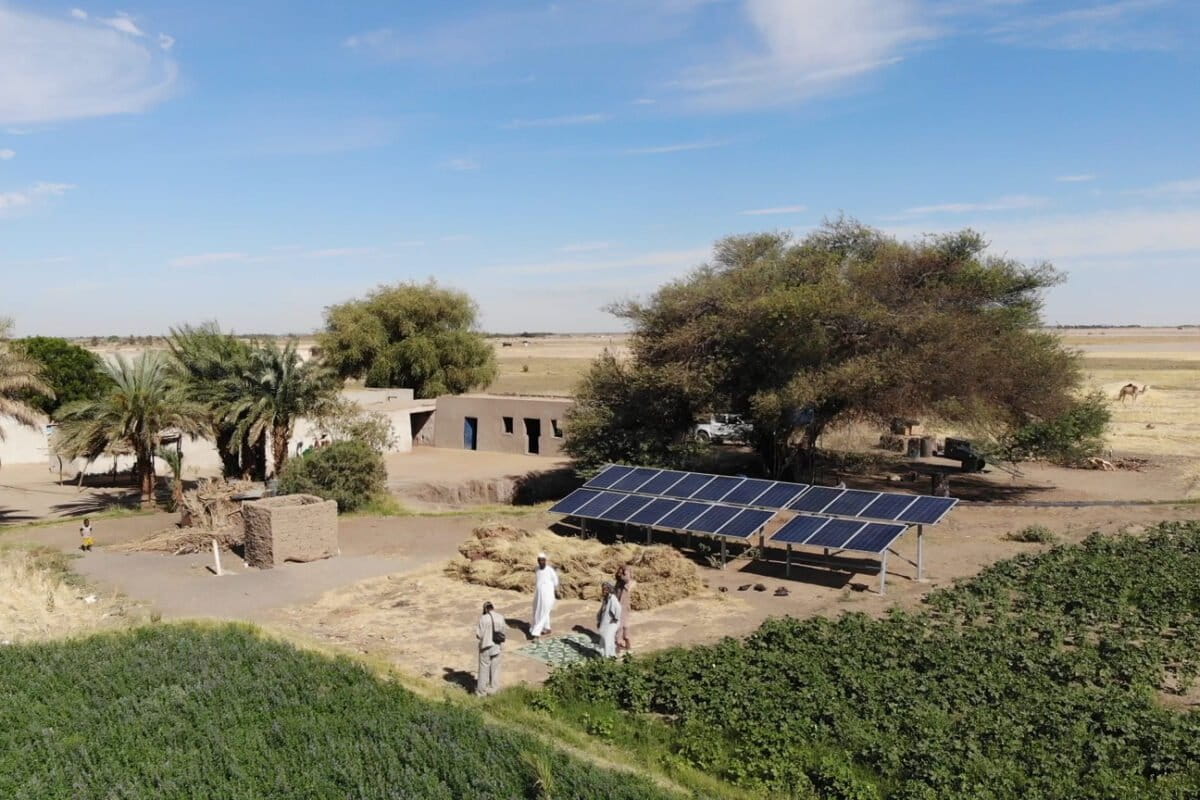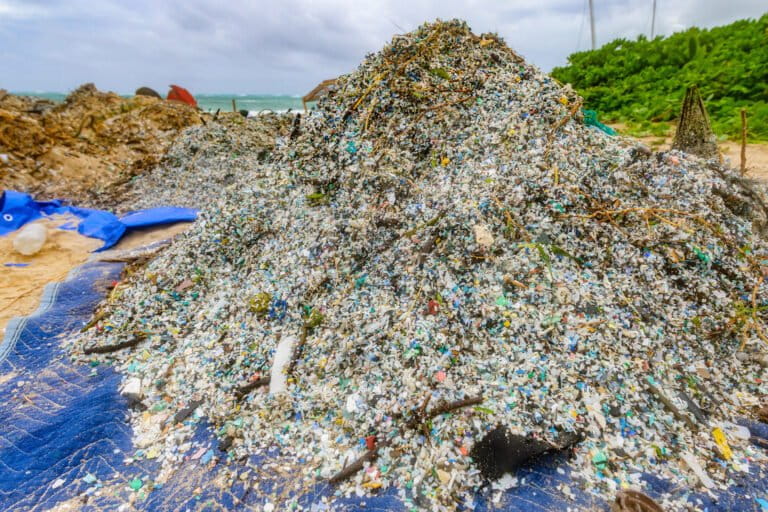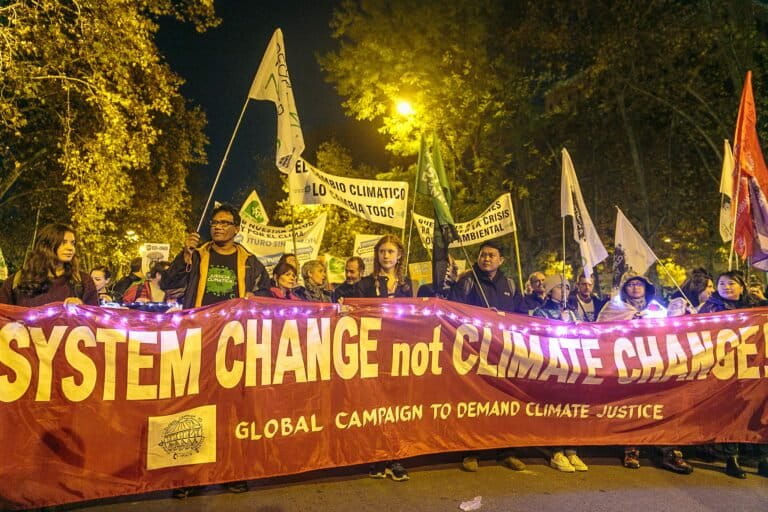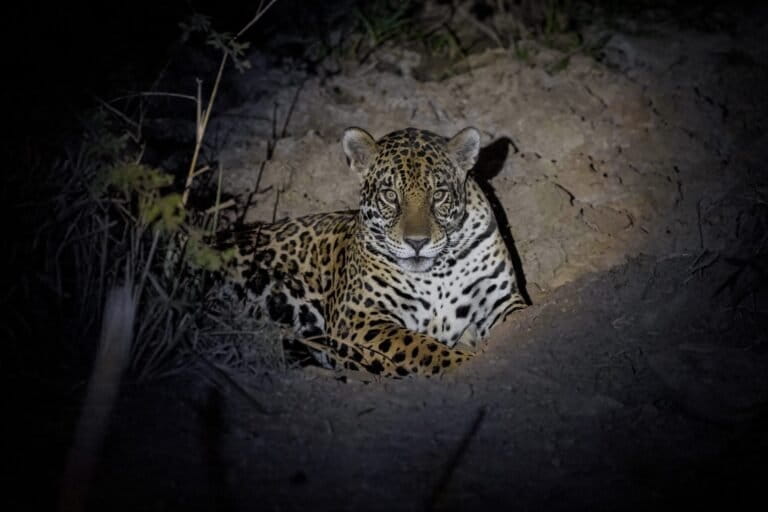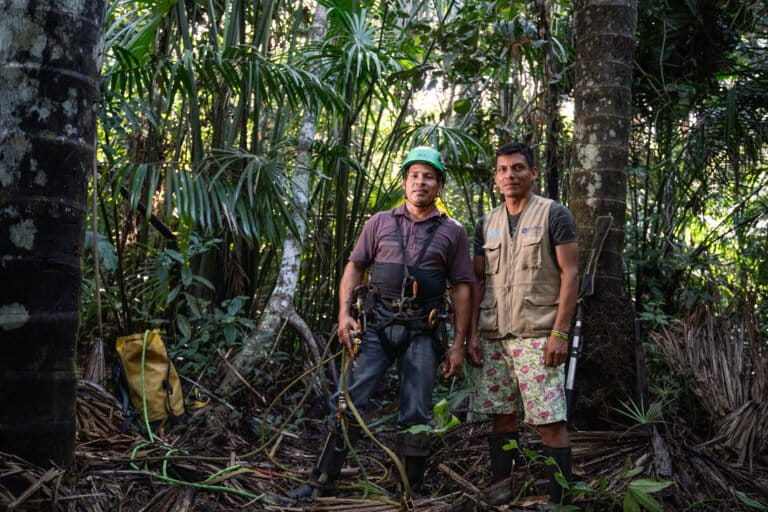- A newborn child in Indonesia’s Riau province has become one of the latest fatalities of the haze blanketing large swaths of the region as a result of fires burning through Sumatra’s forests.
- Nearly 30,000 people in Riau alone have suffered from acute respiratory infections during this year’s fires, and nearly 310,000 have been affected by eye and skin irritation, dizziness and vomiting.
- Among those reporting worrying symptoms are pregnant women, one of whom said she’d miscarried five years earlier during a similar haze crisis.
- The fires burn nearly every year, emitting huge amounts of greenhouse gases that have helped keep Indonesia among the top carbon polluters worldwide and spreading haze as far as Singapore, Malaysia and Thailand.
PEKANBARU, Indonesia — September 16 was a happy day for Evan Zendrato and Lasma Yani Zega. The young couple gave birth to a boy weighing 2.8 kilograms (6.1 pounds). They spent the night at a midwife’s house in Pekanbaru, the capital of Indonesia’s Riau province.
Two days later, they began to worry. Their baby became gravely ill, as thick smoke from wildfires burning across the region blanketed the city.
On the morning of Sept. 18, their baby came down with a high fever, vomiting and hacking up phlegm, and crying like he was having difficulty breathing.
The midwife, Kristina, came immediately to treat the baby with paracetamol and a wet towel. Some of the couple’s friends and family came by to pray for the child’s health. Slowly, his temperature began to fall. The fever began to subside.
In the evening, things took a turn for the worse. The baby’s body turned blue. Evan threw his plate of rice at the wall in frustration. He and Lasma took the baby to hospital. Kristina, who went with them, could feel the baby’s halting breaths as they rushed there in a car.
There wasn’t much the doctor could do. He said the baby had gotten sick from breathing the smoke, which had inflamed his upper and lower respiratory tracts. The baby died, three days after he was born.
The next day, friends and family returned to Evan and Lasma’s house, this time for a funeral.

Evan and Lasma’s baby is not the only casualty of the fires burning across Sumatra’s vast peat swamp zones, which have been widely drained and dried for oil palm and pulpwood operations, rendering the soil highly flammable. Fire is also commonly used as a cheap land-clearing tool, though the practice is generally illegal.
In August, a 59-year-old man was found lifeless in his garden in Rimbo Panjang, a village outside Pekanbaru. His son, Shadik Helmi, who flew to the city from Jakarta when he heard the news, said he thought his father died from breathing in the smoke.
In Sungai Lala, another haze-choked Riau village, a 5-month-old baby died of a high fever and shortness of breath on Sept. 19, the same day as Evan and Lasma’s baby.
According to the Riau Health Office, 29,528 people in the province have suffered from acute respiratory infections during this year’s wildfires. A total of 309,883 people have been affected by eye and skin irritation, dizziness and vomiting.

The smoke from the Indonesian fires has also spread into Malaysia, Singapore and Thailand. In some parts of Indonesia, skies have turned an eerie red color from the haze.
The fires burn nearly every year, emitting huge amounts of greenhouse gases that have helped keep Indonesia among the top carbon polluters worldwide. While the precise health impacts of the fires have yet to be pinned down, scientists agree that smoke from the fires is a deadly threat whose victims number in the thousands.
On Sept. 23, Riau Governor Syamsuar declared an air pollution emergency in the province. He instructed the Riau Health Office to open a health post and shelter for residents affected by the fires. The posts provide medicine and mattresses for people to sleep on.
The post at Jiwa Tampan Hospital is treating dozens of people who have fallen ill from the haze, some of them staying overnight at the hospital.
At a shelter set up at the provincial public works office, only a few people had come for a health check, complaining of bad coughs and shortness of breath. A clerk was available around the clock. On hand were some hospital staff and a doctor.
Similar complaints have been received by the Health Training Center at the Riau Health Office. The facility was only operating until 9 p.m. It provided mats for haze victims to sleep on if needed.
In July, the Supreme Court ordered that the government carry out measures to mitigate wildfires in the country, following a citizen lawsuit filed in the wake of the devastating 2015 fires. The health ministry and regional governments are required to open health posts for people as a result of the ruling in the lawsuit.
Mukhlis, the father of a little girl who died in Riau during the 2015 fire and haze crisis, was among those who testified in the suit. During his testimony, he recalled how his daughter, Muhanum Anggriawat, had had to be treated with oxygen and then a defibrillator after a mild cough worsened to the point where she was hacking up a yellowish-black liquid.

According to the settlement, the Riau government must provide the necessary health facilities for victims of wildfires, including pulmonary service units at local hospitals. They also have to prepare evacuation instructions, set up an evacuation site if the air pollution index exceeds 400 (anything above 100 is considered unhealthy, and above 300 hazardous), and provide emergency health posts at seaports and oxygen supplies at people’s homes. The government has to waive medical expenses for haze victims.
The opposition Prosperous Justice Party (PKS) opened a health post in Pekanbaru on Sept. 13, treating hundreds of people since then.
Dozens of people have been hospitalized at the post, including 41 adults, 49 children and 27 infants. They are staying in sterile rooms with air purifiers and provided with food free of charge.
The post has nurses, pharmacists, pulmonary specialists and six general practitioners. It’s staffed by volunteers 24 hours a day. “They are ready to be called at any time,” said Susilo, the commander of the post.
Patients also receive counseling on how to clean their nose from the effects of breathing in smoke from the fires. Children are entertained with fairy tales by a troupe of storytellers.
Based on data from the Ministry of Environment and Forestry, the air quality in Riau has reached dangerous levels this month, with API readings surpassing 1,000.
Nila, who is four months pregnant, visited the PKS health post this week with her husband and first child. She reported coughing and difficulty breathing, and said her stomach felt tense and cramped. The doctor said the baby was lacking oxygen.
Another evacuee, Novi, has been staying at the post with her husband and children since it opened. She came in the middle of the night because her baby was experiencing shortness of breath. A doctor had previously checked the baby and diagnosed it with a respiratory tract infection.
Rainfall that started on Sept. 23 has stifled the fires somewhat, but many are still burning.
On Sept. 24, the Indonesia Move Coalition, a group of NGOs, said the fires had endangered the health of residents.
“The haze that people inhaled in parts of Sumatra and Kalimantan has eliminated the most basic right of human existence to breathe safely and comfortably,” the group said in a statement.
The repeated incidents of haze over the years, they said, demonstrated the failure of the government to manage the country’s natural resources. “This stagnation in the handling of the haze also shows the failure of the government to anticipate repeated incidents of burning of forests and land, which should have been expected beforehand.”

Nila’s sister, Susi, is also pregnant, though at a more advanced stage. She arrived at the PKS post with her husband at 10 p.m. one night seeking treatment for the shortness of breath she had been experiencing at home for several days.
Susi said she hadn’t felt her baby move since 3 a.m. that day.
She was given oxygen for an hour, and the baby showed signs of being active again.
“I’m traumatized,” she said. “Five years ago I also miscarried because of the haze.”
This story was first reported by Mongabay’s Indonesia team and published here on our Indonesian site on Sept. 26, 2019.
Banner: Smoke rises from an oil palm plantation on a peatland in Sumatra. Image by Rhett A. Butler/Mongabay.
FEEDBACK: Use this form to send a message to the author of this post. If you want to post a public comment, you can do that at the bottom of the page.



